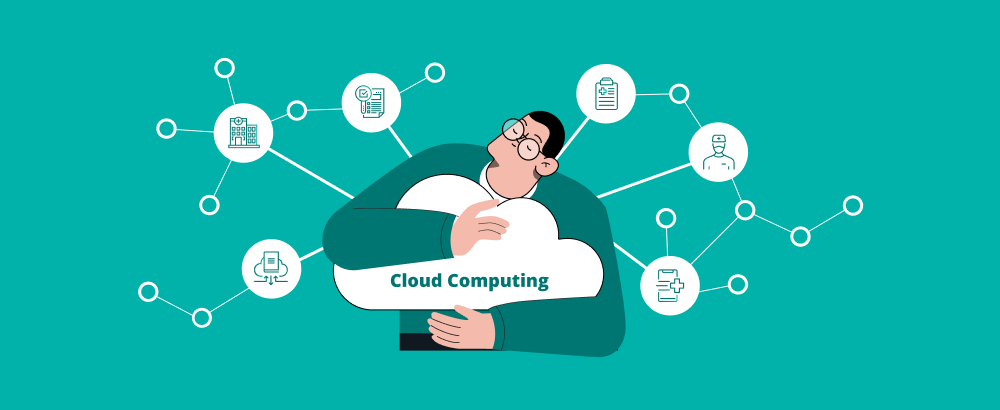Before discussing the utilisation of cloud computing in healthcare, let us know about cloud computing as it is a fairly new technology.
Cloud computing is a service which delivers various computing services including servers, storage, databases, analytics, and networking, among other services over the internet, which implement automation for management.
The healthcare cloud computing market has shown rapid development during the past few years. It is increasingly being used to run critical applications, analyze large datasets, and extract important information.
There is currently a trend of transition being followed in the healthcare market, where various healthcare institutions are increasingly adopting digital and analytics systems. This transformation might be the next step for the development of the healthcare spectrum around the world.
Additionally, the COVID-19 pandemic has increased the necessity for the development of healthcare services for increasing the speed and quality of services provided.
Cloud-Based Healthcare Systems
Cloud-based systems in healthcare offer on-demand services, which can be extremely valuable when healthcare institutions require to access and manage a large information network as quickly as possible.
It also enables healthcare institutions and professionals to share EHR (electronic health records) among authorized physicians, hospitals, and care providers. This speed up the diagnosis process by offering timely access to necessary patient data.
The implementation of cloud computing can improve the analysis and monitoring of patient data for diagnosis, treatment, cost, and performance.
Implementation of cloud computing in mobile applications has improved diagnosis procedures, enabling institutions and professionals to access data from anywhere and anytime.
Implementation of Cloud Computing in the mHealth Apps Market. mHealth applications have been increasingly utilising cloud computing to improve healthcare services and it can enable services to reach rural areas as networks expand to such regions.
Advantages of Traditional Healthcare Systems
Enhancement and Customisability
Cloud computing is capable of full customisation with built-in features and care plans and a wide range of templates that provide an easy to utilise interfaces enabling the user to handle them efficiently.
Server Expansion
Servers and databases in cloud-based systems provide an excellent level of versatility. With the development of networks and increasing penetration of smart devices, data can be accessed from anywhere.
Enhanced Security
The security of the medical data of patients has always been a major concern, whether traditional or cloud-based healthcare systems are implemented.
The implementation of a Cloud-based EHR system can provide a more secure solution than traditional and client/server systems. This strategy works depending on the location of the systems and they are safeguarded.
Supply Chain Management
Healthcare industry needs effective management of data related to medical equipment, medications, and pills. During storage, the data must include all necessary information such as expiry date, buy date, supplier details, and so on. This full set of data can easily be saved on cloud and can be retrieved anytime over the internet.
However, despite the potential, many healthcare organizations and service providers have yet to reach the full capability of cloud computing as it requires proper management of such systems and engagement from the entire healthcare organization.


